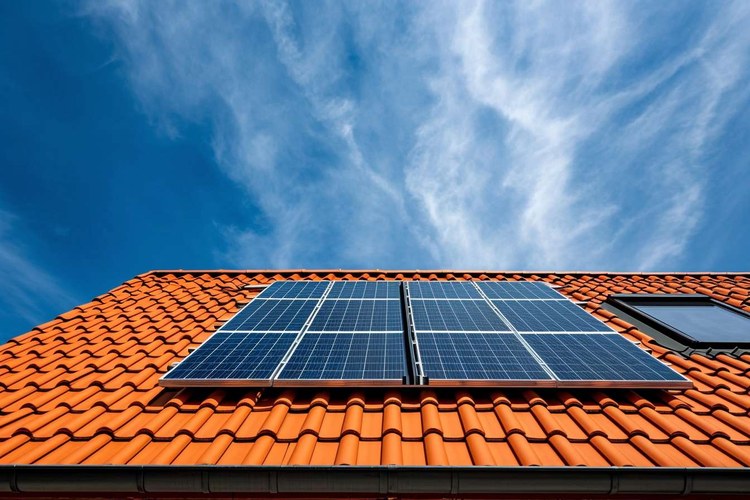10kWh power storage – ideal for single-family homes
As the demand for reliable and sustainable energy solutions grows, many homeowners are turning to power storage systems to enhance their energy independence and reduce reliance on the grid. A 10kWh power storage system has emerged as a popular choice for single-family homes, offering a balance between capacity and practicality. This article explores the benefits, applications, and considerations of implementing a 10kWh power storage solution in residential settings.

What is a 10kWh power storage system?
A 10kWh power storage system is a battery-based energy storage solution designed to store and supply electricity for residential use. The “kWh” stands for kilowatt-hour, which is a unit of energy equivalent to one kilowatt of power sustained for one hour. This capacity allows homeowners to store excess energy generated from solar panels or the grid during off-peak hours and use it when needed, effectively managing their energy consumption and costs.
How does a 10kWh battery benefit single-family homes?
For single-family homes, a 10kWh battery storage system offers several advantages. It provides a reliable backup power source during outages, ensuring essential appliances and systems continue to function. Additionally, it enables homeowners to optimize their energy usage by storing excess solar energy or cheap off-peak grid electricity for use during peak demand periods. This can lead to significant cost savings on electricity bills and reduce the home’s carbon footprint.
What can a 10kWh power storage system power in a home?
A 10kWh power storage system can support various household appliances and systems, depending on their energy consumption. Typically, it can power essential items such as refrigerators, lighting, Wi-Fi routers, and some smaller appliances for several hours during an outage. For homes with solar panels, it can extend the use of solar-generated electricity into the evening hours when the panels are not producing energy.
How to choose the right 10kWh battery storage for your home?
Selecting the appropriate 10kWh battery storage system requires consideration of several factors. Homeowners should assess their energy consumption patterns, the presence of solar panels, and their specific backup power needs. It’s also important to consider the battery’s chemistry, cycle life, depth of discharge, and warranty terms. Consulting with a qualified energy professional can help in making an informed decision based on individual household requirements and local regulations.
What are the installation and maintenance requirements?
Installing a 10kWh power storage system typically involves mounting the battery unit, connecting it to the home’s electrical system, and integrating it with any existing solar infrastructure. While some systems are designed for DIY installation, it’s generally recommended to have a certified electrician or solar installer handle the setup to ensure safety and compliance with local codes. Maintenance requirements are usually minimal, but regular checks and software updates may be necessary to maintain optimal performance.
How do 10kWh home battery systems compare in terms of cost and features?
When considering a 10kWh home battery system, it’s important to compare different options available in the market. Below is a comparison of some popular 10kWh battery storage solutions:
| Product/Service | Provider | Key Features | Cost Estimation |
|---|---|---|---|
| Powerwall | Tesla | Integrated inverter, Mobile app monitoring, Scalable | £6,500 - £7,500 |
| LG RESU10H | LG Chem | Compact design, High energy density, Compatible with various inverters | £5,500 - £6,500 |
| Sonnen eco 10 | Sonnen | Smart energy management, Long cycle life, Integrated inverter | £7,000 - £8,000 |
| Enphase Encharge 10 | Enphase | Modular design, Microinverter technology, Easy expansion | £6,000 - £7,000 |
Prices, rates, or cost estimates mentioned in this article are based on the latest available information but may change over time. Independent research is advised before making financial decisions.
The cost of a 10kWh home battery system can vary significantly based on factors such as brand reputation, additional features, and installation complexity. While the initial investment may seem substantial, many homeowners find that the long-term benefits in energy savings and increased energy independence justify the cost.
In conclusion, a 10kWh power storage system presents an effective solution for single-family homes looking to enhance their energy management and resilience. By carefully considering factors such as energy needs, compatibility with existing systems, and long-term cost benefits, homeowners can make an informed decision on implementing this technology. As the market for home energy storage continues to evolve, we can expect to see further improvements in efficiency, affordability, and integration with smart home systems, making 10kWh batteries an increasingly attractive option for residential energy solutions.




